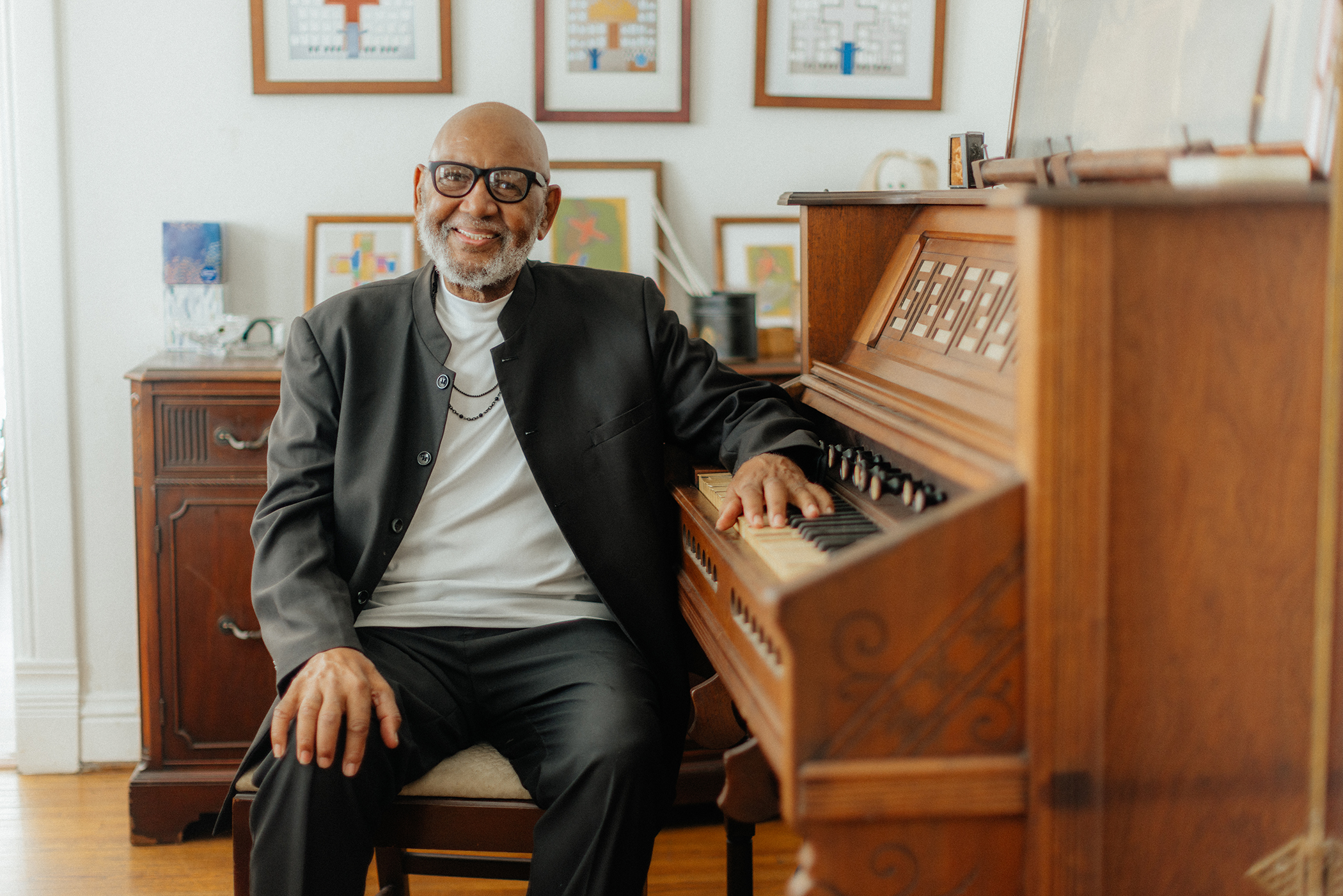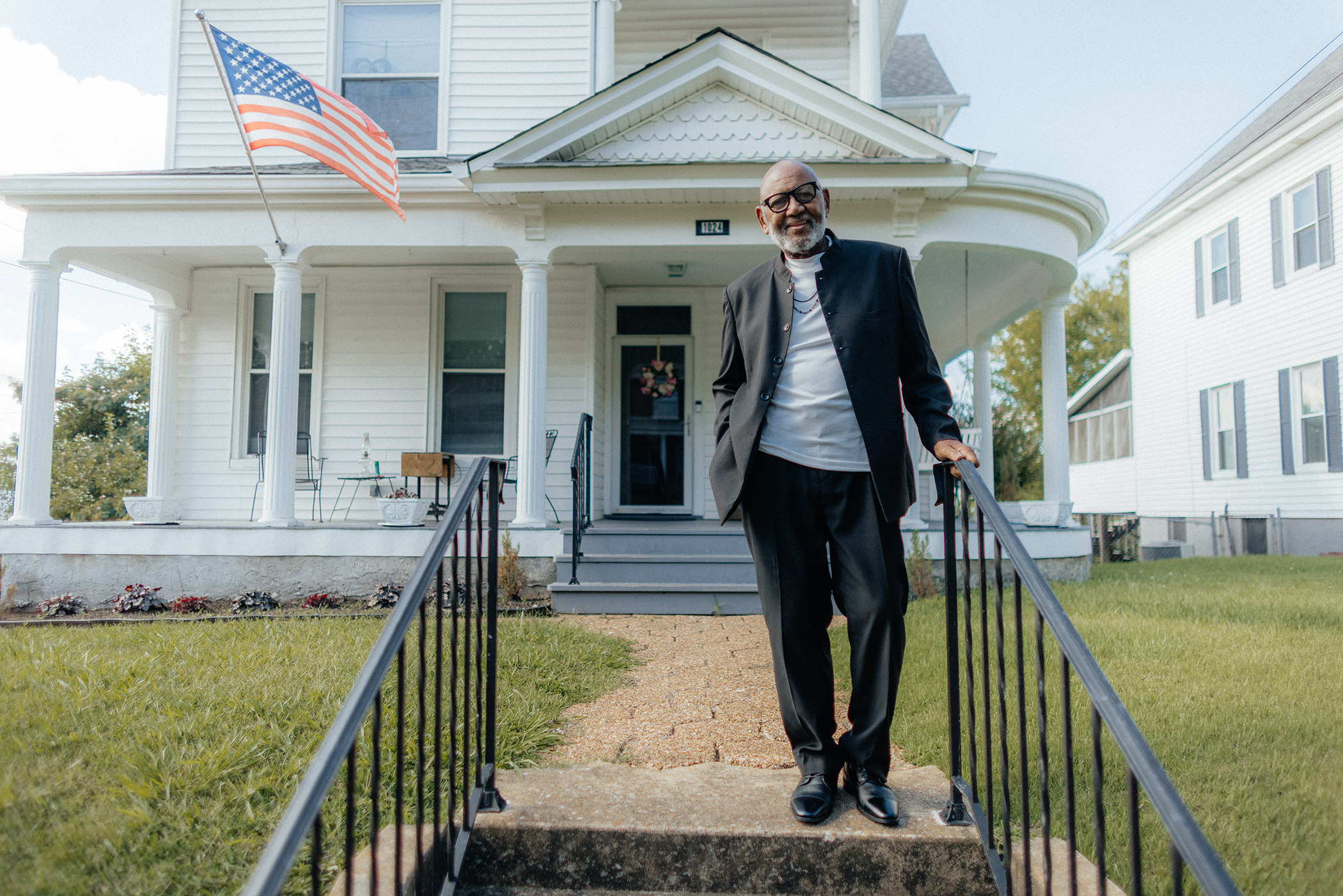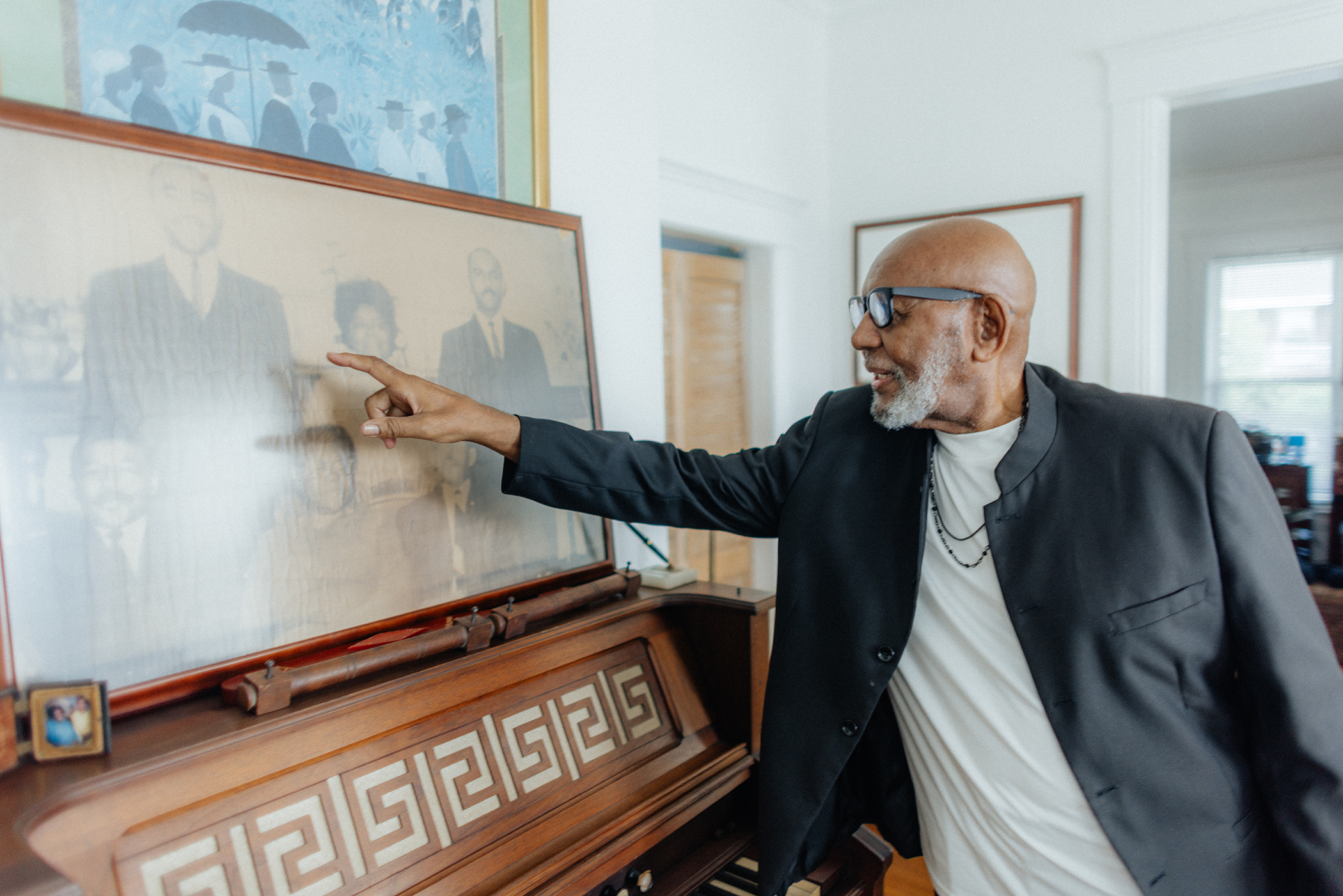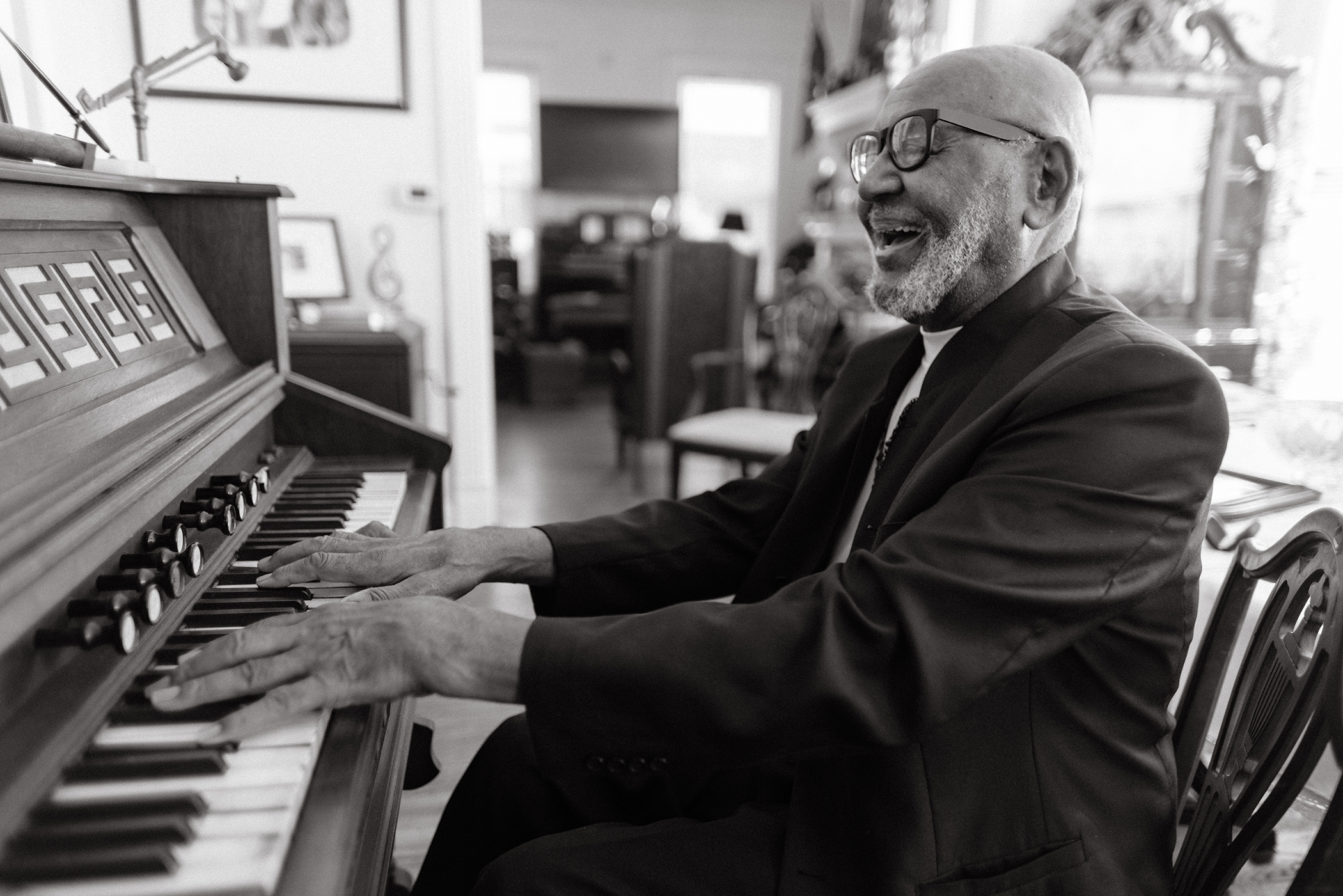2023 AWARD RECIPIENT
Dr. Roland Carter

Lifting Every Voice
To talk with Dr. Roland Carter is to take a tour, not only through Chattanooga, but through the history of American music itself. His home in the heart of the MLK Neighborhood is brimming with photographs, paintings, musical instruments, antiquities, and other mementos of his decades-long career as a composer, conductor, performer, and educator.
While his musical influence now reaches around the world, he stays rooted in his hometown of Chattanooga. He is honored this year with the Ruth Holmberg Arts Leadership Award for his essential contributions to the scholarship and celebration of American music, as well as to the city he loves.
Raised in a family that valued musical talent, he and his siblings were immersed in the rich musical traditions that surrounded them. “I remember coming home from church and climbing up on the piano stool to play what I had heard,” he remembers with a smile. After early lessons with Mrs. Alma Stovall, a local legend who “must have taught every kid in Chattanooga,” he headed to the Hampton Institute (now Hampton University) at the encouragement of Ms. Edmonia Simmons from the Howard School.
At Hampton, he delved into the work of Robert Nathaniel Dett, an eminent concert pianist and composer. His focus on the American Negro spiritual—what he refers to as the American folk song—became a hallmark of his career. “My main emphasis has been on the American Negro spiritual. My emphasis was to not only say that this is music of Black Americans but that it is American music,” he says.
Dr. Carter spent 24 years at Hampton, chairing its department of music and leading its choir, before returning home to Chattanooga in 1989. That year, he accepted a position as the head of the music department at the University of Tennessee at Chattanooga (UTC)—an institution that segregation would have barred him from as a young man. Dr. Carter recalls this time with his characteristic grace and optimism. “It was a lovely opportunity,” he says of his arrival at UTC. ”It was a great thing to see now how far we had come.” He taught there for another 23 years before retiring in 2013.
It was during this time that he met Ruth Holmberg, and served with her on the Board of Allied Arts—the nonprofit organization that later became ArtsBuild. They bonded over an innate understanding of the arts’ larger importance to a city’s identity.
Dr. Carter’s artistic achievements are nothing short of legendary; he conducted the first concert of the African-American Music Series at Carnegie Hall in the 1960s and his arrangement of “Lift Ev’ry Voice and Sing”—commonly known as the Black National Anthem—is considered definitive.
Yet for him, music has always been a means of connecting to and lifting up people, a belief he returns to when reflecting on his career as an educator. “I’ve always been a teacher, even as a student,” he insists. “Teaching has been just part of it, not only in terms of music but in terms of leadership skills. I was never teaching music. I was teaching students.”
The lives that have been changed by Dr. Carter are by now too numerous to count, something that gives him great satisfaction.
“It’s the crowning of a career,” he states about being honored with the Arts Leadership Award this year. “What’s so exhilarating for me is that the recognition is coming from the impact of my work as a teacher—not as a composer or pianist. That’s so meaningful and touching.”
“Teaching has been just part of it, not only in terms of music but in terms of leadership skills. I was never teaching music. I was teaching students.”
—DR. ROLAND CARTER
“Art changes lives. Art
empowers kids by giving them an alternative way of seeing life and seeing themselves.”
— CHARLIE & IANTHA NEWTON / SPLASH YOUTH ARTS WORKSHOP
“Art changes lives. Art
empowers kids by giving them an alternative way of seeing life and seeing themselves.”
— CHARLIE & IANTHA NEWTON / SPLASH YOUTH ARTS WORKSHOP
“Art changes lives. Art
empowers kids by giving them an alternative way of seeing life and seeing themselves.”
— CHARLIE & IANTHA NEWTON / SPLASH YOUTH ARTS WORKSHOP
“Art changes lives. Art
empowers kids by giving them an alternative way of seeing life and seeing themselves.”
— CHARLIE & IANTHA NEWTON / SPLASH YOUTH ARTS WORKSHOP
Want to Know More About the Arts?
Sign up for our e-newsletter and we will keep you informed.





